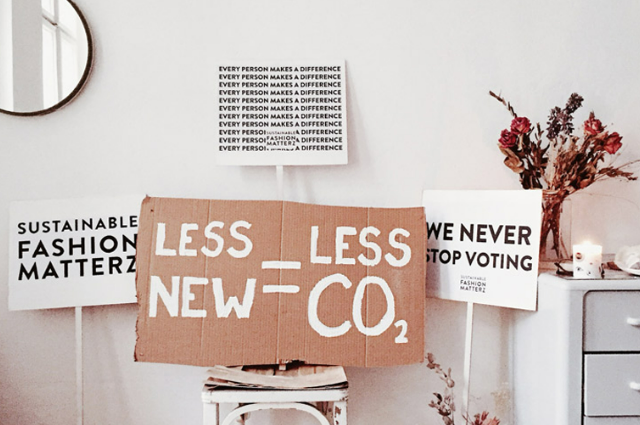
Photo by Cherie Birkner on Unsplash
Introduction
In recent years, the fashion industry has undergone a remarkable transformation. The rise of sustainable fashion has brought to light a new era, one that prioritizes eco-friendly and ethical practices. With increasing consumer awareness and demand for environmentally conscious choices, fashion brands are reevaluating their production methods, embracing the use of recycled materials, and promoting fair trade practices. This article delves into the significance of sustainable fashion, exploring its positive impact on the environment, society, and the industry at large. From innovative fabric technologies to transparent supply chains, sustainable fashion is revolutionizing the way we dress and changing the narrative of fashion for good.
The Environmental Imperative
The fashion industry has long been associated with environmental degradation, from the overuse of water and energy to the pollution caused by chemical dyes and fabric treatments. However, sustainable fashion presents a solution to these pressing issues. One of its key pillars is the use of recycled materials. Brands are now repurposing discarded textiles and plastic waste into high-quality fabrics, reducing the demand for virgin resources and minimizing the industry's carbon footprint.
Moreover, sustainable fashion emphasizes the adoption of eco-friendly production processes. This includes embracing renewable energy sources, reducing water consumption, and employing organic farming practices for natural fibres. By implementing these measures, fashion brands are minimizing their negative impact on the environment, fostering a greener and more sustainable future.
Empowering Fair Trade
Beyond environmental concerns, sustainable fashion also addresses social justice issues within the industry. Fairtrade practices ensure that garment workers receive fair wages, work in safe conditions, and enjoy basic human rights. Sustainable fashion brands prioritize transparency, often providing detailed information about their supply chains and manufacturing processes. This enables consumers to make informed choices and supports companies that prioritize ethical practices.
By shifting towards fair trade, sustainable fashion challenges the exploitative nature of fast fashion, where workers often face exploitation and unsafe working conditions. It promotes a more equitable and inclusive industry that values the well-being of workers, fostering a sense of empowerment and social responsibility.
Innovation in Material Technology
The rise of sustainable fashion has paved the way for remarkable innovations in material technology. Designers and researchers are exploring alternative materials derived from agricultural waste, such as pineapple leaf fibres and mushroom-based leather substitutes. These innovative fabrics not only offer eco-friendly alternatives but also possess desirable qualities like durability, breathability, and aesthetic appeal.
Furthermore, technological advancements are enabling the creation of innovative textiles from recycled materials, including post-consumer plastics and discarded clothing. By harnessing the power of recycling, sustainable fashion is transforming waste into valuable resources, reducing landfill waste and contributing to a circular economy.
Changing Consumer Mindset
The increasing demand for sustainable fashion is a reflection of changing consumer attitudes. Today's consumers are more conscious of the impact of their purchasing decisions, seeking products that align with their values. They are becoming advocates for sustainability and are willing to support brands that demonstrate a commitment to the environment and ethical practices.
To cater to this growing market, fashion brands are adopting sustainable initiatives and integrating them into their core business strategies. Collaborations between sustainable fashion brands and mainstream retailers are also becoming more prevalent, making sustainable options accessible to a wider audience. This shift in consumer mindset is driving the transformation of the fashion industry, making sustainability a cornerstone of success.
Conclusion
The rise of sustainable fashion marks a turning point in the fashion industry. It represents a conscious effort to address the environmental and social challenges that have long plagued the sector. By embracing eco-friendly materials, fair trade practices, and innovative technologies.
